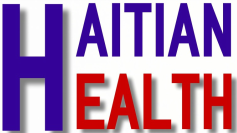 In all cultures, stories have played a vital role in the sharing of ideas, memories, and wisdom among community members. In infancy, childhood and adulthood, humans have always been fascinated by stories that resonate with them and create these feelings that are likely to have either a short or long-lasting impact on their lives. Thus, several researchers teamed up to explore the usefulness of storytelling to influence the level of knowledge, attitude, and behavior of patients in regards to their lifestyle managements. In a research study, 299 African-Americans patients, aged on average 53-54 years old, in majority females (73%), with a high school or graduate education (81.63%), and on at least 1 antihypertensive medication, were assigned randomly to two different groups. One group of 147 patients (also called intervention group) was exposed to storytelling DVDs. These DVDs “featured 3 storytellers who described living with hypertension, gave lessons they had learned about how to best interact with their physicians, and offered strategies to increase medication adherence”, provided information on blood pressure, shared methods on how viewers could “express their concerns and questions to their physicians”; and educated them on how to identify “hidden sodium” as well as “getting adequate exercise” [1]. In the second group or control group, there were 152 patients who were not exposed to these videos. Then, within these two groups the patients were subdivided at random into smaller groups depending on how well they were managing their blood pressure (i.e., controlled and uncontrolled hypertension).
Comparing the patients who were still involved in the study at the 3rd and 6-9th months, the researchers discovered that the patients who viewed the storytelling DVDs subsequently experienced a drop in their blood pressure (systolic and diastolic) in the 3rd month; which was statistically significant (p < 0.012) in the subgroup of patients who could not control their blood pressure very well. At 6-9 months, visualizing the storytelling DVDs produced the same scenario among the patients who could not adequately control their blood pressure before participating in the study. These results eventually led the researchers to conclude that culturally appropriate storytelling is a potentially impactful tool to educate patients on blood pressure management in the African-American population. Can storytelling yield similar impacts in the Haitian-American community? Will using this method work well for diabetes management? The potentials exist. Further research will certainly tell us the story. Reference 1. Houston, T. K., Allison, J. J., Sussman, M., Horn, W., Holt, C. L., Trobaugh, J.,... & Person, S. D. (2011). Culturally appropriate storytelling to improve blood pressure: A randomized trial. Annals of Internal Medicine, 154(2), 77-84. doi: 10.7326/0003-4819-154-2-201101180-00004
0 Comments
Leave a Reply. |
Mickelder Kercy, M.D. M.S.I learned about the art and science of medicine and was introduced to the community and population-based aspects of public health at the Université Notre Dame d'Haiti. My early practical interventions in the field of public health during medical residency in Haiti fostered my interest in pursuing additional academic training in public health. At Columbia University in the City of New York, I specialized in Public Health with a minor focus on Community Health Education. My special interest is in non-communicable chronic diseases, and the social-ecological approach to health education and promotion in secular and faith-based communities. Archives
October 2017
Categories
All
To subscribe to our blog and receive notifications of new posts by email
|


 RSS Feed
RSS Feed
